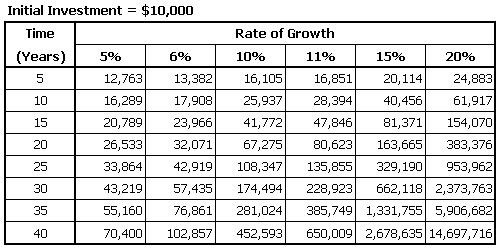Rich Man, Poor Man – How to Make Money as an ‘Average’ Investor
The online sphere of financial literature and advice columns is littered with advice as to how to profit off of the stock market as an individual investor; many of these are, in our opinion, either dishonest, over-complicated, or both. In order to properly articulate the only time-tested method to amassing wealth through the stock market, as an individual investor, we were reminded of a popular article written by the late Richard Russell. For those unfamiliar, Richard Russell was known as the ‘Dean of Dow Theory’, a popular market methodology, as well as being a perennial market commentator with a refreshingly pragmatic and logical approach to assessing the markets. The following insights are paraphrased based on the key findings of his popular article, “Rich Man, Poor Man” posted to his website named ‘Dow Theory Letters’.
The crux of the idea is that large institutional or exceedingly wealthy investors do not need the market. They have access to more lucrative individual investment opportunities and they also have enough supplemental income through their ongoing careers, investments, or other affiliations to allow them not to depend on their capital invested into the stock market, either. Because they do not depend on or require this capital, they have the luxury of time, which allows a lower mental hurdle for patience and affords them the ability to wait for investment value when there isn’t any currently apparent. Smaller individual investors, on the other hand, have less capital invested into the stock market – on both a notional and percentage basis – and, in a way, rely on or value that capital more due to their relatively lower amount of supplemental income sources. Because of this, in order to make real money, they need the stock market to ‘do’ something for them, which often results in an upwards shift in risk and volatility. Smaller investors are constantly chasing home-run investments which will balloon their capital, which is a historically losing strategy. Wealthier investors have the luxury of patience due to the lack of desire or need to ‘knock out the lights’. In order to combat this fallacy as a smaller individual investor, Mr. Russell suggested a few key simple ideas to remain constantly cognizant of.
The first and most important rule of finding success as a small investor is compounding interest. The sensation which was referred to by Einstein as the 8th wonder of the world is a slow and often boring process; however, with perseverance, intelligence and patience, the glories of steady compounding will inevitably result in a winning strategy in the long term. Starting to invest as early as possible is key, while maintaining as long a time horizon as possible is essential. Small percentages may seem paltry in isolation, but over time, many are amazed at the growth which they achieve. In order to display the magic of compounding interest, Richard Russell recommended a thorough understanding of the compound interest table, which can be found below.
Exhibit 1:
Rule number two is simple and to the point: don’t lose money. This has often been listed as Warren Buffett’s number one rule, with his second rule being to never forget rule number one. Stating a rule like this is often seen as flippant and even arrogant, but it is more about a mind-set rather than an absolute rule; investment losses will happen, the idea is to keep them small and to keep them to scenarios which were out of your control. Stop speculating or investing in long-shot gambles, invest in value and invest in stable returns, and eventually you will accumulate wealth.
The final rule was briefly alluded to previously, and it is that value is the only reason to ever stray from your patient strategy of compounding stable returns. Regardless of your own personal facilities, if you are introduced to clear and unequivocal value in the marketplace, such as a market in 2008 which was trading at a P/E of 5 times earnings, then capitalize on it. At the same time, however, remember to recognize once this value has been extended or dissipated. Once the market, sector or investment has rebounded to what you believe to be its fair value, return to your previous strategy of stable, compounded returns.
The overall strategy that an individual investor should employ over the long term can be aptly summarized by a quote from George Soros: “If investing is entertaining, if you’re having fun, you’re probably not making any money. Good investing is boring.”
Our President, David MacNicol, followed Richard Russell for a large portion of his career, and was deeply saddened to hear of his passing. We would encourage you all to visit his website, www.dowtheoryletters.com, where you can find both free and subscriber-only wisdom from one of the best market commentators of the latest era. If you would like to read Richard’s original piece on this subject, please click here to view a PDF version of the article.
MacNicol & Associates Asset Management Inc.
February 3, 2016


